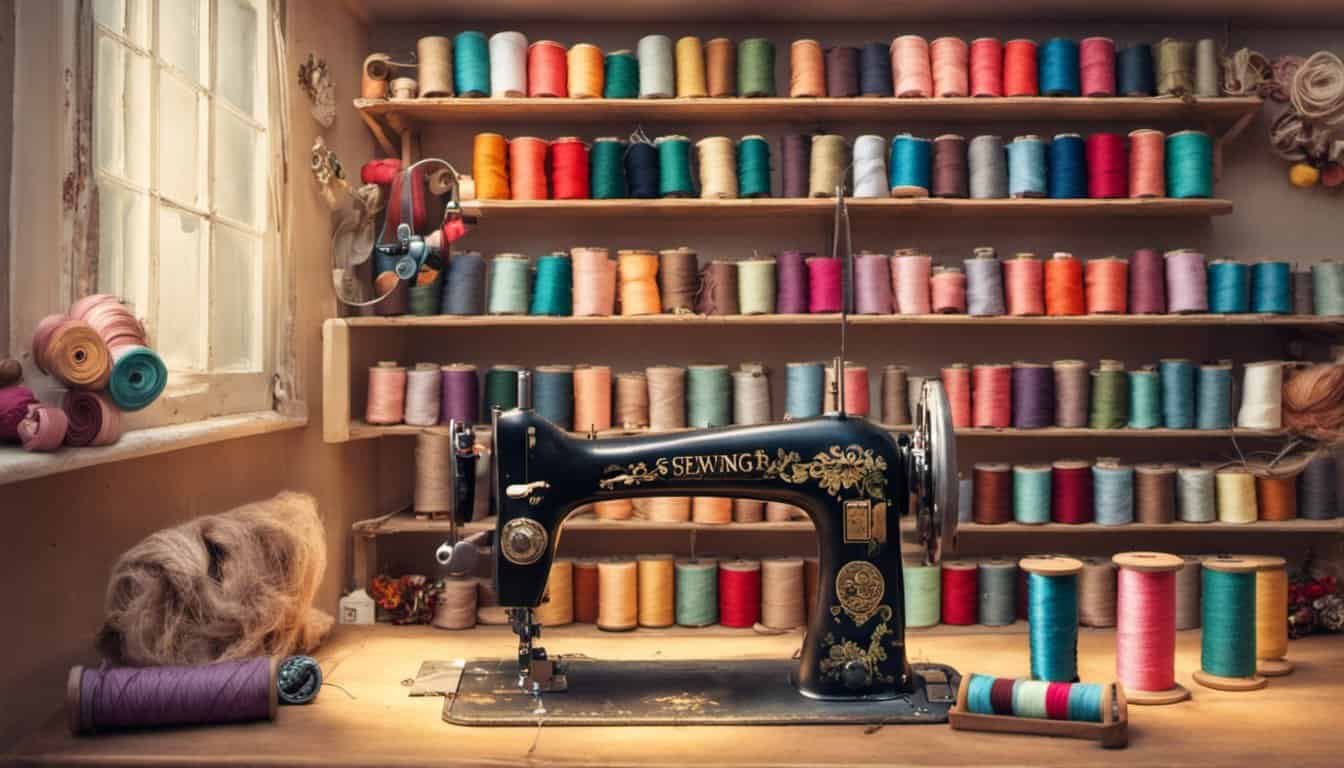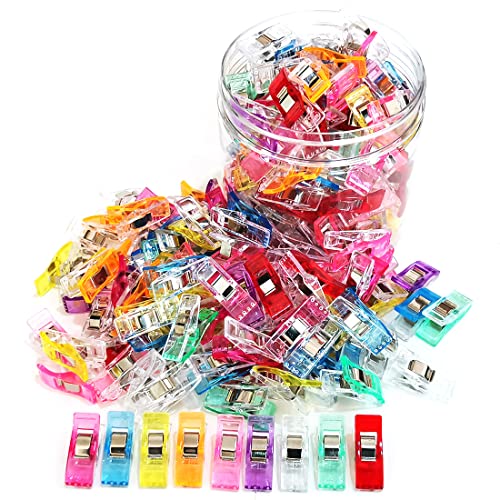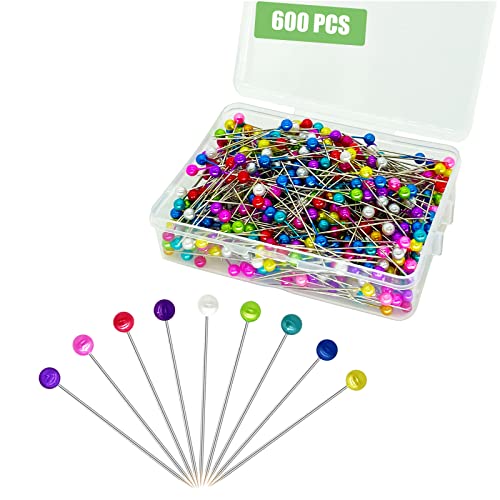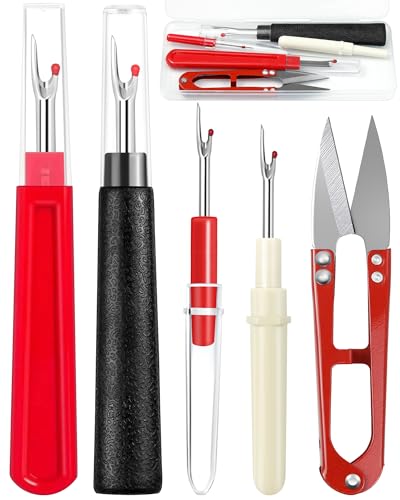If you’re new to sewing or simply looking to expand your knowledge, understanding the different types of sewing machine needles is essential. Today, we’ll focus on polyester fabric and explore the best type of needle to use for this material. Choosing the right needle can make a significant difference in the quality of your stitches and the overall success of your sewing projects. So, let’s dive in and discover the ideal sewing machine needle for polyester!
When it comes to sewing with polyester fabric, using the correct needle is crucial. Polyester is a synthetic material known for its durability and versatility. However, it can be a bit tricky to work with if you don’t have the right needle. The wrong needle can cause skipped stitches, puckering, or even damage to the fabric. To ensure smooth and professional-looking results, it’s important to select the proper needle that is specifically designed for sewing polyester.
Understanding Sewing Machine Needles
When it comes to sewing, using the right needle is just as important as choosing the right fabric. Sewing with polyester fabric requires a specific type of needle to ensure optimal results. Let’s dive into understanding sewing machine needles and why using the correct needle is crucial for sewing polyester fabric.
1. Needle Sizes
Sewing machine needles come in various sizes, indicated by a number. Thicker fabrics, such as denim or upholstery materials, require larger needle sizes than lighter fabrics like silk or chiffon. For polyester fabric, a universal needle with a size range of 70/10 to 90/14 works well. The smaller the number, the finer the needle, and vice versa.
2. Needle Types
Aside from sizes, sewing machine needles come in different types, each designed for specific purposes. When sewing polyester fabric, consider using a ballpoint needle. The rounded tip of a ballpoint needle glides smoothly between the fabric’s fibers without causing snags or damage. This needle type is perfect for knit fabrics and synthetic fibers like polyester.
3. Needle Quality
Investing in high-quality sewing machine needles is worth it. Cheaper needles may have imperfections in their tips or burrs along the shaft, which can damage delicate fabrics like polyester. Look for reputable brands that prioritize quality and precision manufacturing.
4. Needle Maintenance
Replacing your sewing machine needle regularly is essential. Dull or damaged needles can cause skipped stitches, fabric pulls, or even unraveling seams. As a general rule, replace your needle after every 8-10 hours of sewing or at the start of a new project.
5. Needle Selection Tips
When in doubt about the type or size of needle to use for polyester fabric, consider the following tips:
- Consult your sewing machine’s manual for suggested needle types and sizes.
- Test stitch a scrap piece of fabric before starting your actual project to ensure the needle works well.
- Take note of any issues, such as skipped stitches or tension problems, and adjust needle types or sizes accordingly.
Different Types of Sewing Machine Needles
When it comes to sewing with polyester fabric, using the correct needle is key to achieving flawless results. As an expert in all things sewing, embroidery, knitting, and crafts in general, let me guide you through the different types of sewing machine needles that will work perfectly with polyester.
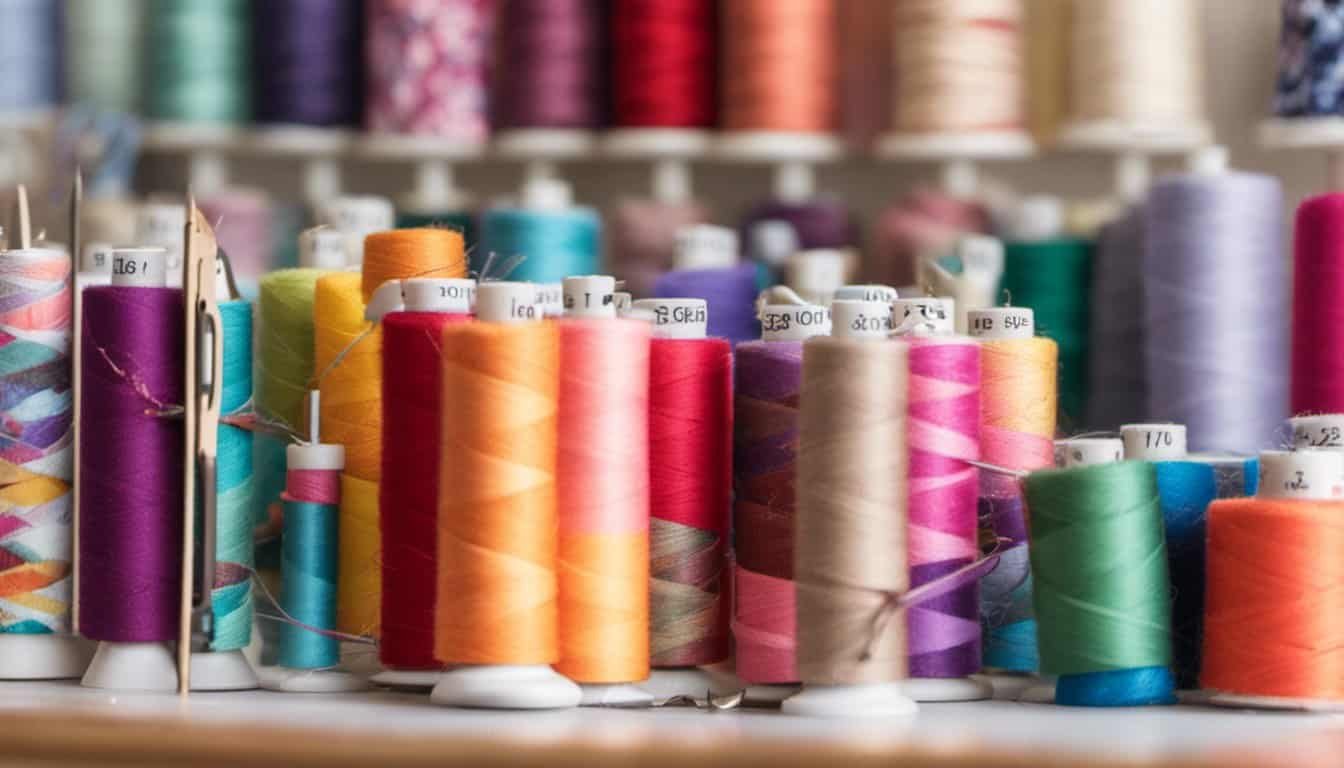
Universal Needles: These versatile needles are suitable for a wide range of fabrics, including polyester. They have a slightly rounded point, making them a great choice for general-purpose sewing. However, if you’re working with delicate polyester fabric, it’s best to opt for a more specialized needle for better results.
Ballpoint Needles: When sewing polyester, a ballpoint needle is your best friend. Its rounded point helps it glide smoothly between the fabric’s fibers, preventing any damage or snags. This needle type is particularly useful when working with stretchy polyester fabrics like jersey or spandex. The ballpoint needle gently pushes aside the fabric threads instead of piercing them, resulting in neat and professional-looking stitches.
Stretch Needles: If you frequently sew garments made from highly stretchable polyester fabrics, consider using stretch needles. These needles have a deeper scarf, allowing the thread to loop more easily, ensuring that the stitches won’t pop or break when the fabric stretches.
Microtex Needles: Microtex needles, also known as sharp needles, are perfect for sewing polyester fabric when you want to achieve precise and neat stitches. They have a very fine, sharp point that easily penetrates through tightly woven polyester, resulting in clean and smooth seams.
Topstitch Needles: If you’re sewing polyester fabric and want to add decorative topstitching, consider using topstitch needles. These needles have an extra-large eye that accommodates thicker, decorative threads. The sharp point provides excellent visibility and control while stitching, making it ideal for precise topstitching details.
« Discover the Ultimate Sewing Machine Hotspots: Where to Buy, Bargain, and Uncover Hidden Gems
Discover the Ultimate Sewing Kit Must-Have Every Fashionista Needs for Stunning DIY Creations »
Remember, using the correct sewing machine needle is essential when working with polyester fabric. Always refer to your sewing machine’s manual to determine the appropriate needle size and type for the fabric you’re using. Be sure to test stitch on a scrap piece of fabric to ensure the needle and thread are working well together. And don’t forget, regularly replacing dull or damaged needles will help prevent any issues during sewing.
Choosing the Right Needle for Your Fabric
When it comes to sewing with polyester fabric, using the correct needle is key to achieving professional-looking results. Polyester is a synthetic fabric known for its durability and resistance to wrinkles. However, it can be a bit tricky to work with if you don’t have the right tools.
One of the most important factors to consider when selecting a needle for polyester fabric is the size. Needle sizes range from 70/10 to 90/14, with smaller numbers indicating finer needles. For polyester fabric, a needle size of 80/12 is generally recommended. It’s always a good idea to check your sewing machine’s manual for any specific guidelines or recommendations.
Another crucial consideration is the needle type. When sewing polyester, it’s best to use a ballpoint needle. Unlike a sharp needle, which has a pointed tip, a ballpoint needle has a rounded tip that glides smoothly between the fabric’s fibers without causing damage. This is especially important for polyester fabric, which is prone to snags and pulls.
Investing in high-quality needles is essential when working with delicate fabrics like polyester. These needles are made from durable materials that are less likely to bend or break while sewing. Regularly replacing dull or damaged needles is crucial to preventing issues such as skipped stitches or fabric damage. Remember, a little maintenance goes a long way!
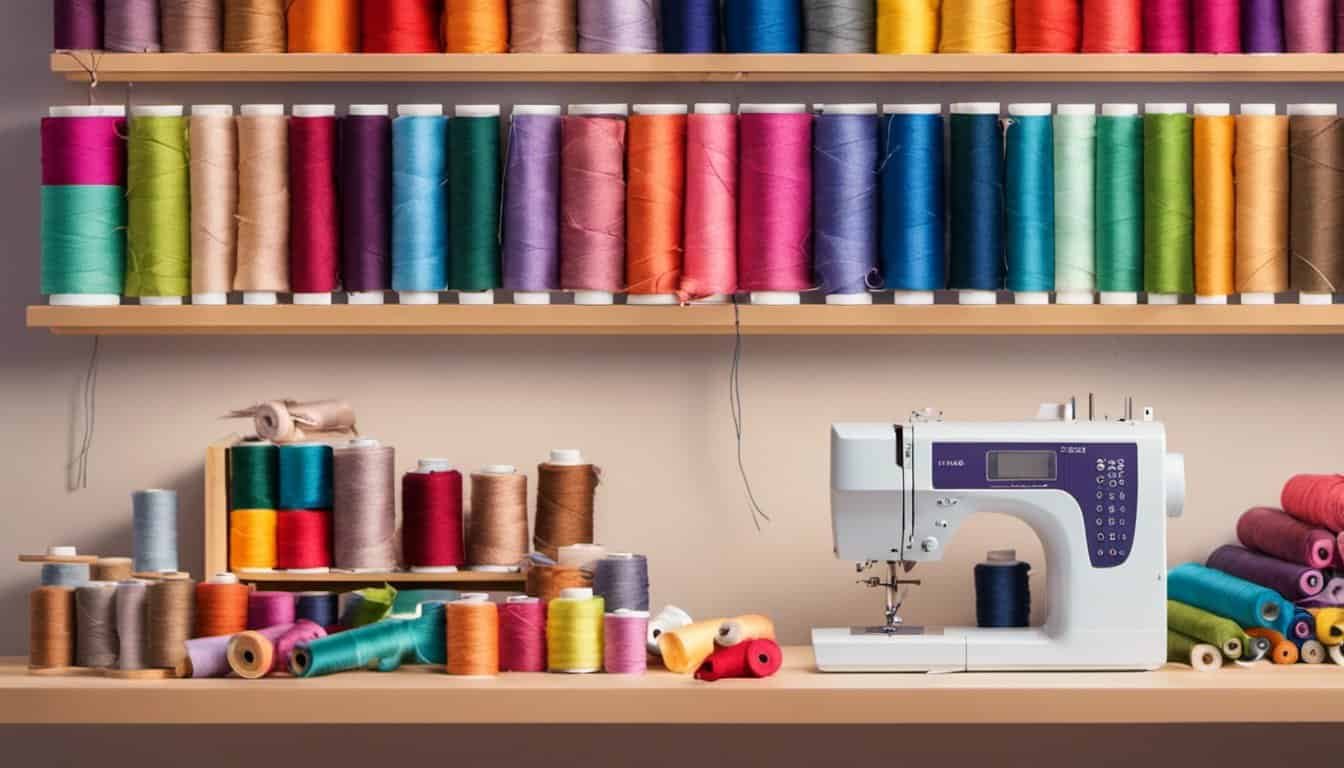
If you’re unsure about the type or size of needle to use for your polyester fabric, don’t hesitate to consult your sewing machine’s manual. It often provides valuable information about needle selection for different fabrics. Additionally, it’s always a good idea to test stitch on a scrap piece of fabric before starting your project. This will allow you to adjust the needle size or type if needed, ensuring that you achieve the best results possible.
The Importance of Choosing the Right Needle for Polyester
When it comes to sewing with polyester fabric, choosing the right needle is crucial. As an expert in all things sewing, embroidery, knitting, and crafts in general, let me tell you why selecting the correct needle for polyester is so important.
- Avoiding Issues: Using the wrong needle can lead to a range of problems. Imagine working on a beautiful polyester project, only to have your stitches skipped or the fabric damaged. By choosing a needle specifically designed for sewing polyester, you can avoid these frustrating issues and achieve smooth, professional-looking results.
- Needle Sizes: Needles for sewing machines come in different sizes, indicated by a numerical value such as 70/10 to 90/14. Smaller numbers represent finer needles. When sewing polyester fabric, it’s ideal to use a smaller needle size to prevent large needle holes. This ensures your fabric remains intact and retains its drape.
- The Ballpoint Needle: For sewing polyester, a ballpoint needle is highly recommended. This type of needle has a rounded tip that glides smoothly between the fabric’s fibers without causing damage. This is especially important because polyester fibers can be delicate and prone to snagging. Using a ballpoint needle will help you maintain the integrity of the fabric.
- Invest in Quality Needles: Investing in high-quality needles is essential for sewing polyester fabrics. Cheaper needles may have irregularities or dull quickly, leading to issues like broken threads or uneven stitches. Opting for quality brands may cost a bit more, but it ensures that your sewing experience is frustration-free and your final product is flawless.
- Replace Dull or Damaged Needles: Regularly replacing dull or damaged needles is essential, regardless of the type of fabric you’re sewing. This practice helps prevent issues during sewing and keeps your machine running smoothly. As a rule of thumb, it’s recommended to replace your needle after every eight to ten hours of sewing.
The Best Sewing Machine Needles for Polyester Fabric
When it comes to sewing with polyester fabric, using the correct needle is essential to achieve professional-looking results. Polyester is a synthetic fabric that requires a special needle to avoid issues like skipped stitches or fabric damage. Let’s explore the best sewing machine needles specifically designed for sewing polyester fabric.
1. Ballpoint Needles
The ballpoint needle is a top choice for sewing with polyester fabric. It features a rounded tip that glides smoothly between the fabric’s fibers without causing any damage. Unlike sharp needles which can pierce through the fabric, ballpoint needles push the fibers aside, reducing the risk of snags or runs. If you often work with knit polyester fabrics, like jersey or spandex, a ballpoint needle is a must-have in your sewing arsenal.
2. Needle Sizes
Sewing machine needles come in various sizes, and selecting the right size is crucial for sewing polyester fabric. The size is indicated by a number and is usually shown as a fraction. For example, 70/10 to 90/14 are commonly used sizes. The smaller the number, the finer the needle. When sewing with lightweight polyester fabrics, opt for a smaller-sized needle, while heavier fabrics may require a larger needle.
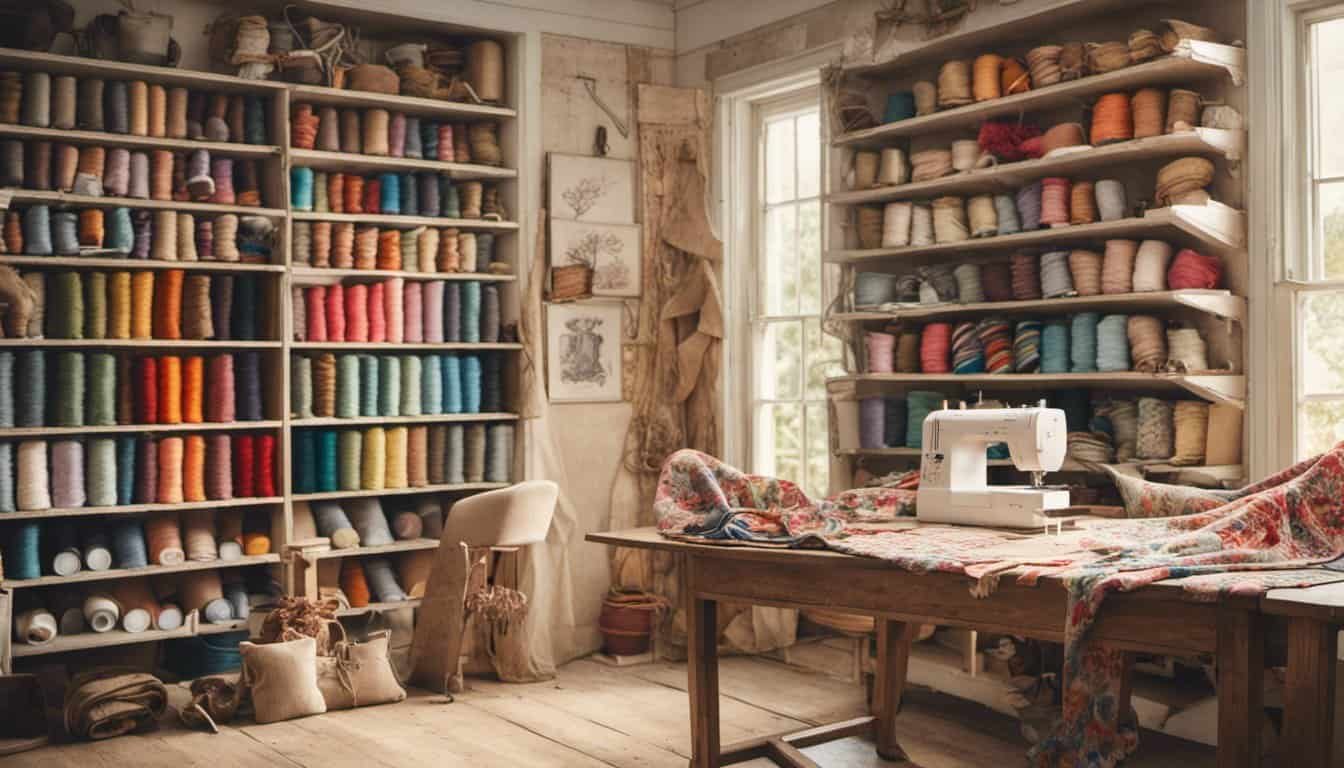
3. Quality Matters
Investing in high-quality sewing machine needles is always a wise decision, especially when working with delicate polyester fabrics. High-quality needles are made from superior materials that provide durability and ensure smooth stitching. They are less likely to cause imperfections or damage the fabric. Remember to replace dull or damaged needles regularly to prevent any issues that may arise during sewing.
4. Test and Adjust
If you’re unsure about the type or size of needle to use, consult your sewing machine’s manual, which often provides guidance on needle selection for different fabric types. Additionally, it’s always a good idea to test stitch on a scrap piece of fabric before starting your sewing project. This will allow you to adjust the needle size or type as needed, ensuring that your stitches are perfect from the start.
By choosing the right sewing machine needle for your polyester fabric, you can achieve beautiful, professional-looking results. Whether you opt for a ballpoint needle, select the appropriate size, invest in high-quality needles, or conduct a test stitch, these tips will help you sew with confidence and create stunning projects every time.
Conclusion
Choosing the right sewing machine needle for polyester fabric is crucial to achieve professional-looking results. By understanding the different types and sizes of needles, you can avoid issues like skipped stitches or fabric damage. When working with polyester, it is recommended to use a ballpoint needle, as it glides smoothly between the fabric’s fibers without causing any harm. Remember that needle sizes range from 70/10 to 90/14, with smaller numbers indicating finer needles. Investing in high-quality needles is important to prevent imperfections that can damage delicate fabrics. Make sure to regularly replace dull or damaged needles to prevent any sewing issues. If you’re unsure about the type or size of needle to use, consult your sewing machine’s manual, test stitch on a scrap fabric, and adjust as needed. With the right needle, you’ll be able to sew polyester fabric with ease and achieve beautiful results. Happy sewing!
